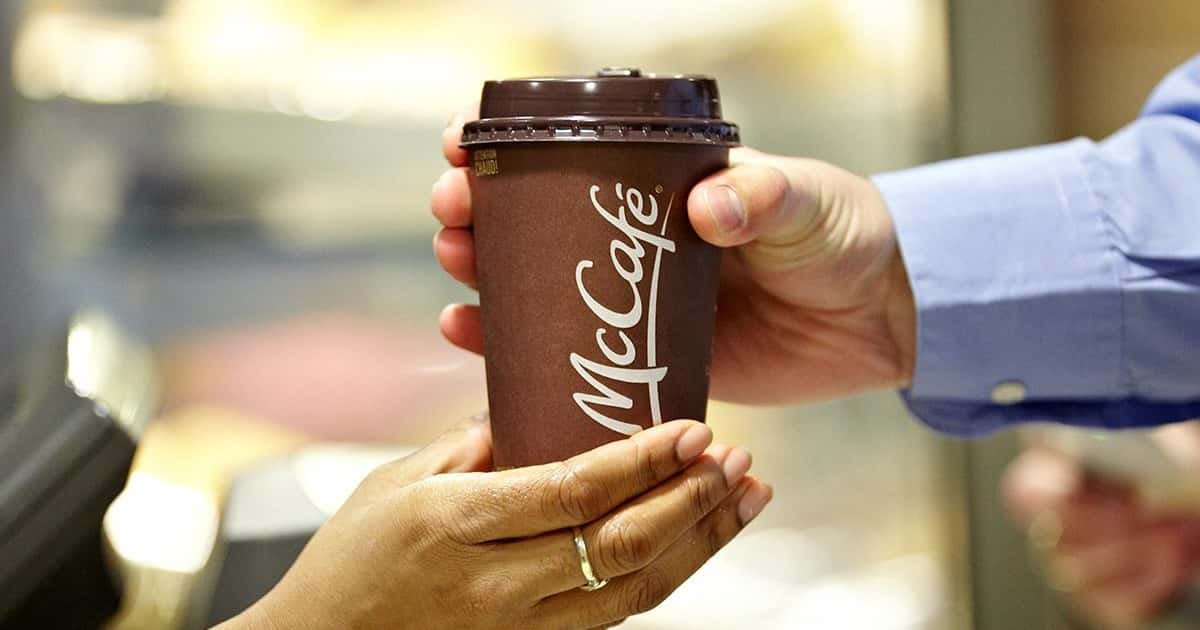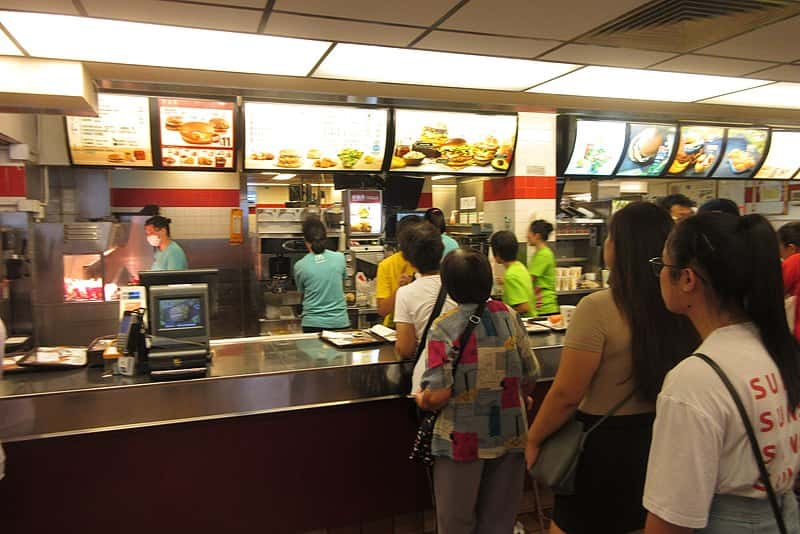
McDonald's Has Another Lawsuit Over A Hot Coffee Spill Decades After The First
McDonald's Has Another Lawsuit Over A Hot Coffee Spill Decades After The First
The first time McDonald’s was sued over a hot coffee spill was back in the ‘90s when a customer ordered a cup of coffee from a drive-thru in Albuquerque, New Mexico. Stella Liebeck was with her grandson at the time, and after being handed her cup of coffee, they pulled into the parking lot so she could add her cream and sugar.
For whatever reason, their vehicle did not have any cupholders, so she held the cup between her knees to keep it steady. The coffee then spilled onto her legs, causing third-degree burns that would end up requiring extensive surgery to treat. To many people’s surprise, when she sued McDonald’s, she ended up being awarded almost US $3 million in damages. The incident has since sparked many debates on whether such a lawsuit (and similar ones to follow) actually justified or trivial.
Now, almost thirty years after Liebeck’s case, McDonald’s faces another lawsuit regarding a hot coffee spill. Lok Fung, a mental health support worker, is suing a franchise in Burnaby, B.C. after being burned by hot coffee. Fung alleges that on Jan 21, 2021, the worker passed the coffee cup to her from the drive-thru window without securing the lid properly. The hot coffee then spilled onto her, leaving significant burns on her left wrist and left thigh.
 Wikimedia
Wikimedia
The lawsuit argues that McDonald’s was negligent in this incident on multiple fronts. It accuses the restaurant of 1) serving the coffee at a temperature that was too high to drink safely, 2) not warning Fung that the drink was “extremely hot,” and 3) not training its employees well enough to ensure the customer’s safety. At this time, the Burnaby restaurant has not yet responded to Fung’s claim in court.
Fung’s case differs slightly from Liebeck’s case in that the worker’s actions resulted in injuries in the former, whereas the customer’s actions resulted in injuries in the latter. Still, in Liebeck’s case, the courts still found that McDonald’s was liable for serving coffee at an unsafe temperature and ultimately ruled in favor of the plaintiff. It should also be noted that Liebeck’s injuries were reportedly extensive—she needed to undergo skin graft surgeries to treat burns that covered 16 percent of her body.
Nevertheless, it’s clear that hot coffee spills could pose a problem for fast-food chains if they are not careful. Starbucks and Tim Hortons have also faced lawsuits regarding hot coffee spills before, but the courts did not always rule in favor of the customers.
Source: 1
READ MORE

Some of people's most common financial habits will draw increased scrutiny from banks.

There’s no soft way to say it—$700 on a $3,000 monthly income is heavy. That’s nearly a quarter of your gross pay, and if that $3K is before taxes, the slice of take-home pay is even bigger. Once you factor in insurance, gas, and maintenance, your car could easily be absorbing 30–35% of what actually hits your bank account each month.

Something is quietly shifting in the American workforce. Professionals who spent years in offices are trading keyboards for tool belts, and the numbers behind that decision are more serious than most people realize.

Can you deduct clarinet lessons if your child’s orthodontist prescribed them for an overbite? Here’s what the IRS really says about medical expense deductions, quirky treatments, and how to stay out of audit trouble.

Banks notice patterns. Someone deposits cash strategically to stay under certain thresholds. The person thinks they're being smart about paperwork, but they are actually committing a felony under federal banking law without realizing it.

The decision to quit a stable job for influencer fame, very often than not, hinges on a single assumption: that viral success can be replicated. For thousands of aspiring creators annually, this assumption proves catastrophically wrong. The pattern is consistent and brutal. One video explodes across platforms, racking up millions of views and thousands of new followers, creating an intoxicating illusion of overnight success. The creator interprets this as validation of their content skills, quits their job to focus full-time on creation, then watches in bewilderment as subsequent videos barely crack five-figure view counts. No, this isn't a failure of talent or effort. It's a fundamental misunderstanding of how virality works and what it takes to build a sustainable creator career. The viral video was likely a perfect collision of timing, cultural moment, and algorithmic favor—a combination nearly impossible to engineer deliberately. Meanwhile, rent still comes due, savings accounts drain faster than anticipated, and the question becomes urgent: can you actually go back to the career you abandoned?
Disclaimer
The information on MoneyMade.com is intended to support financial literacy and should not be considered tax or legal advice. It is not meant to serve as a forecast, research report, or investment recommendation, nor should it be taken as an offer or solicitation to buy or sell any securities or adopt any particular investment strategy. All financial, tax, and legal decisions should be made with the help of a qualified professional. We do not guarantee the accuracy, timeliness, or outcomes associated with the use of this content.
Dear reader,
It’s true what they say: money makes the world go round. In order to succeed in this life, you need to have a good grasp of key financial concepts. That’s where Moneymade comes in. Our mission is to provide you with the best financial advice and information to help you navigate this ever-changing world. Sometimes, generating wealth just requires common sense. Don’t max out your credit card if you can’t afford the interest payments. Don’t overspend on Christmas shopping. When ordering gifts on Amazon, make sure you factor in taxes and shipping costs. If you need a new car, consider a model that’s easy to repair instead of an expensive BMW or Mercedes. Sometimes you dream vacation to Hawaii or the Bahamas just isn’t in the budget, but there may be more affordable all-inclusive hotels if you know where to look.
Looking for a new home? Make sure you get a mortgage rate that works for you. That means understanding the difference between fixed and variable interest rates. Whether you’re looking to learn how to make money, save money, or invest your money, our well-researched and insightful content will set you on the path to financial success. Passionate about mortgage rates, real estate, investing, saving, or anything money-related? Looking to learn how to generate wealth? Improve your life today with Moneymade. If you have any feedback for the MoneyMade team, please reach out to [email protected]. Thanks for your help!
Warmest regards,
The Moneymade team








